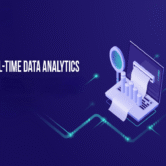
Define the core components of cloud computing services relevant to startups.
Introduction
Cloud computing offers startups a flexible, cost-effective, and scalable environment to launch and grow their digital products and services. Unlike traditional IT infrastructure, which requires upfront investment in hardware and maintenance, cloud computing delivers computing power, storage, and applications over the internet on a pay-as-you-go basis. This enables startups to focus on innovation rather than infrastructure. To make the most of this technology, it is essential to understand the core components of cloud computing services that are most relevant and impactful in a startup context.
Infrastructure as a Service (IaaS)
IaaS provides virtualized computing resources over the internet, including servers, storage, networking, and operating systems. For startups, IaaS is particularly valuable because it eliminates the need to purchase and maintain physical hardware. Cloud providers such as Amazon Web Services (AWS), Microsoft Azure, and Google Cloud offer scalable infrastructure that can grow with the startup’s needs. Startups can provision virtual machines, manage databases, and configure network settings through user-friendly dashboards, paying only for the resources they consume. This flexibility allows rapid scaling and experimentation without significant capital investment.
Platform as a Service (PaaS)
PaaS offers a ready-to-use development and deployment environment in the cloud. It provides the tools and frameworks necessary to build, test, and launch applications quickly, including development tools, middleware, database management systems, and runtime environments. Startups benefit from PaaS by reducing the complexity of managing backend services. With platforms like Heroku, Google App Engine, or AWS Elastic Beanstalk, developers can focus on writing code and improving user experience instead of worrying about infrastructure, scaling, or server maintenance. This accelerates time-to-market and supports agile development cycles.
Software as a Service (SaaS)
SaaS delivers software applications over the internet that are accessible via browsers or mobile apps. These applications are hosted and managed by third-party providers and are ideal for startups looking to minimize development costs. SaaS tools cover a wide range of functions—from customer relationship management (CRM) and project collaboration to accounting and marketing automation. Examples include tools like Slack, Zoom, Mailchimp, Salesforce, and Notion. Startups rely on SaaS to streamline operations, enhance productivity, and improve collaboration without building custom solutions.
Storage Services
Cloud storage provides secure, scalable, and accessible options for storing data such as files, databases, images, and backups. Startups often use storage services to host website content, application assets, or large datasets. Cloud storage is typically organized into object storage (e.g., Amazon S3), block storage (e.g., Azure Disk Storage), and file storage (e.g., Google Cloud Filestore), each suited to different needs. These services offer redundancy, durability, and access controls, ensuring that data remains safe, available, and compliant with data protection regulations.
Networking and Content Delivery
Networking services are fundamental to ensuring that applications and services can communicate reliably and securely across regions and users. Cloud providers offer features like virtual private clouds (VPCs), load balancers, and content delivery networks (CDNs) to optimize performance and protect applications from traffic spikes or malicious attacks. CDNs such as Cloudflare or AWS CloudFront cache content closer to the user, improving application speed and reliability. These tools are crucial for startups launching digital products to a geographically distributed customer base.
Security and Identity Management
Security is a top priority for startups operating in the digital realm. Cloud platforms provide built-in tools for authentication, authorization, data encryption, firewall configuration, and security monitoring. Identity and Access Management (IAM) systems allow startups to define who has access to specific services and resources. This minimizes the risk of breaches and supports compliance with regulatory requirements. Security components are often customizable, enabling startups to implement multi-factor authentication, single sign-on (SSO), and role-based access controls from the beginning.
Monitoring, Logging, and Analytics
Effective cloud computing relies on constant monitoring and data-driven insights. Cloud platforms offer tools that track performance metrics, usage statistics, error rates, and system health. Services like AWS CloudWatch, Google Cloud Operations Suite, and Azure Monitor allow startups to detect and resolve issues quickly, optimize performance, and plan future infrastructure needs. Logging and analytics tools also enable startups to gain visibility into user behavior, application performance, and resource utilization—key factors in making informed decisions and scaling efficiently.
Conclusion
Understanding the core components of cloud computing—namely IaaS, PaaS, SaaS, storage, networking, security, and analytics—equips startups with the tools they need to innovate, grow, and remain competitive. These services form the foundation of modern startup infrastructure, offering the speed, agility, and cost control necessary for success in a digital-first market. By leveraging these cloud components strategically, startups can transform their ideas into scalable, resilient, and high-performing solutions.
Hashtags
#CloudComputing #Startups #TechInnovation #SaaS #IaaS #PaaS #CloudServices #BusinessGrowth #DigitalTransformation #StartupTips #Entrepreneurship #Scalability #CostEfficiency #DataStorage #RemoteWork #AgileDevelopment #CloudSecurity #TechStartups #BusinessSolutions #FutureOfWork





